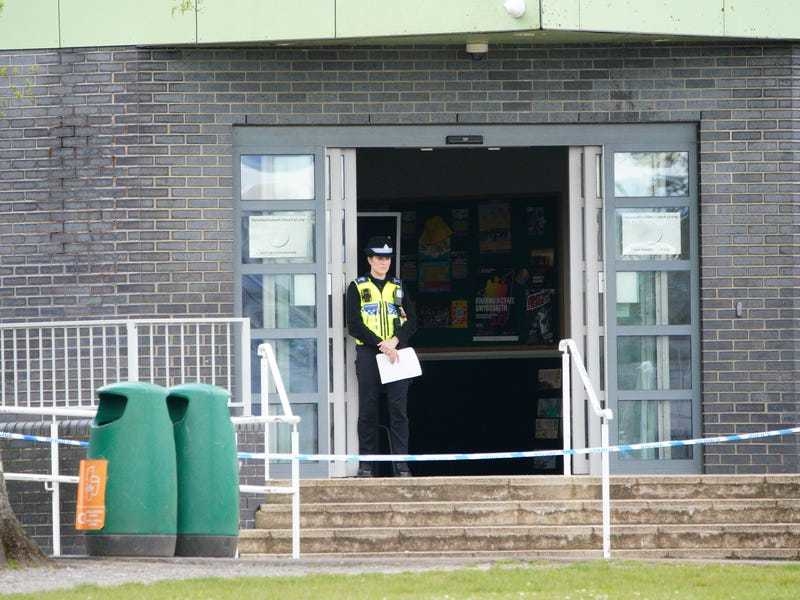From Senator Lyndon Farnham’s closing comments – ‘you’ve been the best audience, thank you and goodnight’ – to Stevie Ocean asking those in attendance to ‘give a big hand’ to the backstage team and departing Constable Mike Paddock, who chaired the meeting, for setting up the parish hall, it was clear the candidates enjoyed their evening out west.
St Ouen is traditionally one of the busiest hustings events in any election calendar and the signs of another large turnout were evident half an hour before the meeting, when members of the public were being asked to park in a nearby field as the parish hall facilities were already full.
With each having limited time on the microphone, the 17 Senatorial candidates vying for eight Islandwide seats played their greatest hits – with any mention of tighter migration policies, improved affordable housing schemes and failures of the previous government receiving hearty applause from the packed parish hall.
The generous welcome and support from St Ouen parishioners would have given the majority of candidates the feeling that they may just have picked up a few western votes on the march towards polling day.
Opening speeches
Immigration was the hot topic as the candidates opened proceedings.
Given just three minutes to make their initial remarks, the majority made some reference to migration controls.
Former St Clement Deputy Gerard Baudains kicked off proceedings by saying that ‘immigration needs to be controlled’ otherwise more green fields will be ‘under concrete’ and traffic will increase. He added that a complete overhaul of ministerial government was needed to tackle the big issues facing the Island.
It was a message echoed by Senator Sarah Ferguson who said the argument that immigration levels needed to be high to cover the cost of the ageing population was unfair to elderly Islanders who ‘look after the children’, provide voluntary services and ‘climb Kilimanjaro’.
St Brelade Constable Steve Pallett added that we ‘can’t simply bring in more and more people of working age’ as uncontrolled immigration placed huge pressure on the Island’s infrastructure. However, he added that he would like to see consultation with businesses and Islanders before any potential introduction of work permits.
Deputy John Le Fondré added: ‘If we want to retain all that we think is good about Jersey, it is important we have far better controls with some flexibility for business but firstly we must have good data.’
The St Lawrence Deputy also criticised the current government for its ‘poor communication’ saying we ‘shouldn’t have to read between the lines’ to understand ministerial decisions.
Deputy Tracey Vallois said: ‘We require the requisite skills to assist business but need to recognise the impact it has on services.’ She added that investing in education would help cover any potential skills shortage while reducing the need of businesses to import staff.
Moz Scott pointed to the failures of the States over the past three-and-a-half years. She said: ‘The Island needs fresh faces to repair the ship. The current politicians that lack joined-up thinking need to be changed now.’
Reform Jersey party chairman Deputy Sam Mézec told parishioners that he wanted to ‘be at the forefront of delivering change’, adding that there had been an over-reliance on expensive UK consultants because ‘nobody in government is ever accountable’. He added that the increasing costs of living and housing were ‘trends that cannot carry on’.
Affordable housing was on the agenda for three current States Members – Senator Farnham and Deputies Kristina Moore and Simon Brée – who argued in favour of parishes getting more support for housing schemes.
Deputy Moore said: ‘We know that you have found it a struggle in St Ouen to find a site for affordable housing. Every parish should have a plan for influencing planning applications.’
Deputy Brée added that ‘government must support parishes in developing small-scale affordable housing developments’, before saying that he would support removing GST from food and children’s clothing.
Senator Lyndon Farnham said: ‘A key target for the next Assembly must be to increase the supply of homes at least in line with demand if we are to make any progress. A stumbling block to any young person with aspirations to buy a home is cost.’
Phil Maguire, wearing his trademark bright waistcoat, criticised the government for failing to protect the Island’s elderly population. In particular, he cited the lack of a free TV licence for those over 75.
Gordon George Troy also vowed to fight for the Island’s elderly population, advocating the introduction of a ‘liveable pension’. Mr Troy also discussed introducing work permits to control the growing population.
With overhauls to the machinery of government being one of the last major debates of the previous Assembly, Chief Minister Ian Gorst, one of just three Senators seeking re-election, said that he wanted to continue that work and ‘drive out waste’ in the public sector.
He said: ‘I have started to make a difference and provide hope for the future. This election is very much about change.’
Ant Lewis, who did not take part in the question-and-answer session due to his speech condition aphasia, told the St Ouen parishioners that ‘you have never seen a candidate like me’. He vowed to fight for equality and the environment should he be successful at the polls.
Stevie Ocean pointed to his success in removing the phrase ‘UK’ from Google when describing Jersey which would help ‘educate others’ about the Island. He warned LinkedIn, YouTube and Twitter that they were next on his hitlist.
The current government was criticised for a lack of accountability by businessman Gino Risoli who said that only once full transparency is achieved can true change be made.
Finally, Frank Luce said the Island no longer trusted the States to do what was best for them. He said: ‘People have lost faith and feel angry their opinions are totally ignored by the elected Members once they get into office.’
Electoral reform
REFORM of the States Assembly has been a major topic for a number of years.
And one St Ouen parishioner asked whether the States should create large super-constituencies and elect only one type of States Member rather than the current three-tier system of Senators, Deputies and Constables.
Mr Troy simply said that the States had failed to deliver any meaningful change and that ‘we don’t seem to get things done’.
Deputy Vallois said that the whole electoral reform discussion had been ‘a bit of a mess’ and added that her Senatorial campaign had perhaps persuaded her that larger districts were the right way forward but that any reform of the States needed to be in line with changes to the machinery of government.
Mr Ocean said: ‘There has got to be communication with everybody and I believe the Council of Ministers would work much better if that were to happen. Hopefully, it is something that the new administration will take on board.’
‘Turkeys don’t vote for Christmas,’ Mr Risoli said. ‘If we had transparency and accountability, particularly financial transparency we could weed out the people that are doing us a disservice.’
Two of the candidates – Mr Luce and Mr Baudains – both indicated that they would support a return to the old-style committee system rather than the current ministerial set-up.
Mr Luce said: ‘We have had electoral reform. We have gone from committees to the Council of Ministers system. We don’t like the Council of Ministers system. The power of government is held by eight to ten people.’
Mr Baudains added that electoral reform was the ‘main thrust’ of his campaign and that it was a mistake to reduce the number of Senators from 12 to eight.
Concerns were raised by Mrs Scott that large districts would erode the parish system. She said she would rather see a reduction in the number of States Members by reducing the number of Deputies in the Chamber.
Senator Ferguson agreed with Mr Baudains about the reduction of the number of Senators saying the staggered approach – whereby six Senators were elected every three years on six-year terms – would provide continuity in the States and prevent the situation with this election where the vast majority of Senators are stepping down.
As the name of his party might suggest, Deputy Mézec supported overhauling the make-up of the States arguing ‘everyone should have an equal vote’ by electing Members in equal-sized constituencies.
‘I think the three-tier system is part of what makes our system dysfunctional,’ he said.
Deputy Moore agreed, saying that she had hoped to be the last St Peter Deputy as she had hoped that by the time the next term of the States started there would be super-constituencies.
Meanwhile, Mr Pallett slammed the Assembly for failing to enact the results of the referendum on electoral reform. ‘We held a referendum and we ignored it and it was a disgusting decision’, he said, before adding the Island needed one more vote on the issue that was binding.
Taking an opposing view, Deputy Brée said: ‘I don’t agree with super-constituencies. It is going to erode the parish system which has been the bedrock of our society for centuries. It does away with the parishioners’ opportunity to elect their own parish representative.’
Deputy Le Fondré said that the machinery of government and public-sector proposals must be given time to bed in first before the make-up of the States is discussed once again. He added: ‘If we go with one single Member it means getting rid of Constables and getting rid of Senators – I don’t agree with that.’
In a brief answer, Mr Maguire said the Island first needed to understand what was wrong with the current system and that the Assembly had ‘no real idea’ of how we were going to get real improvement.
Senator Gorst discussed the changes to the way the public sector is run that were approved by the last Assembly. He said that he had ‘no confidence’ that electoral reform would happen during the next term of office because of how much the States had already dragged its feet on the issue. He added that the election observers, who are reporting on the Island’s system and electoral processes, were likely to raise some uncomfortable issues.
That left Senator Farnham to close proceedings in his home parish. He agreed with Mr Baudains and Senator Ferguson that the decision to reduce the number of Senators was wrong.






